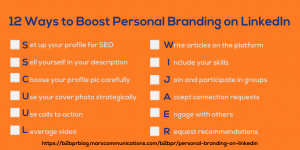You may find a potential employee who is impassion about your product, experienced in managing teams and marketing initiatives, and a great culture fit. All of these attributes, although impressive, do not make a good product manager. Product managers are often lauded as an early start-up’s most important hire, and it’s not a gross over exaggeration to say that your company’s future success hinges on their performance. Product managers require specific expertise to navigate the murky waters of design, development, and marketing. All too often it’s easy to assume that someone can simply learn on the job, and while that may be true for exceptional candidates, it’s not necessarily a gamble you want to make with your own company.
They Hire Yes-Men and Women
The job of a product designer is to constantly question and challenge. “How is this product solving a problem?”, “ How is this product making good on the promises we’ve laid out?”, “How is this product staying ahead of the competition?”
The startup world is dynamic and the technology powering today’s current crop of products may very well be obsolete in a year or two. Your product manager cannot rest on laurels, and must be willing to push the rest of the team to consistently look forward as they do. Product managers must lead the charge on the continued iteration and research on ideas. Just because your startup experienced success following your initial launch does not mean that your success will continue. Young companies plot their own death when they choose to ride the wave of early successes over advancing. When a new product is successfully launched into the marketplace, you can bet that there will be several companies looking to adopt your idea – and enhance it to make it better. In this scenario, your company could go from leading the pack to bottoming out in a mere matter of months. It’s up to the product manager and team to continually hunt for problems; only when product managers are focused on finding the root of existing problems, can they devise stronger solutions.
Now you might be asking “how is it possible to predict whether a new hire will be forward-thinking?” Unfortunately, you won’t know for sure. However, if you find an individual who offers your company more than just praise, but rather, questions your product’s actual value and expounds on the risks that currently surround your strategy, then you likely have a winner. Criticism can be a tough pill for entrepreneurs to swallow, especially when they regard their products as their babies, but criticism and questions will expand your longevity.
They Go Too Broad
It’s easy to let good ideas run down the rabbit hole. Many first-time entrepreneurs might find themselves asking, “If my product solves X problem, why can’t it also solve Y and Z?” These are good questions to have; they should be considered and mapped out. But when you’re first launching a product into the market sphere, going too broad can be a death wish. For example, some startups fall into the trap of trying to build cross-platform applications in order to reach every device and possible customer. First Round Review recently cited Southwest as one of these cautionary tales. The airline built a cross-platform toolkit to push its app out across devices in one fell swoop. The result was a clunky disaster, and Southwest was forced back to the drawing board. New startup product teams are encouraged to start small and perfect the product before expanding into broader territory. Especially if your company is a brand new entity in the marketplace, you’ll only get one shot at a first impression, and if you blow it on a product that is too broad, and not functional enough, you may never get your initial customer base back.
They Don’t Spend Enough Time Testing
New businesses are often up against the clock. Whether it’s investor-set timelines or hearsay of an impending competitive launch, there’s no such thing as an excess of time in the product world. With that said, however, product teams can not sacrifice adequate testing time to beat a schedule. Product development requires tireless testing; it’s by no means a fun cycle, but it’s an essential one. Every new iteration or update must be tested in its entirety and analyzed. When product teams rush this process to speed ahead to the launch finish line, they are only setting their product up for failure once it’s taken out of beta.
They Don’t Set Internal Communication Structures
While communication is key to business success across all practice areas, it is especially essential to the livelihood of product management teams. Developing a product is a dynamic process that requires the management of a lot of moving parts. If your product team is not in constant communication, you are putting your brand at greater risk of product setbacks that could offset timelines, budgets, and investor expectations. Investing in communication tools is crucial to help product teams fulfill their daily responsibilities. In addition to tools, a communications protocol must be put in place. For example, when does a UX designer share testing results with the founder and at one point does the development team step in to offer their insight on how incorporating new audience insights will impact development timelines? These are the questions that a product manager must have on his/her radar at all time. In order for a product to be developed to its full potential there must be fluidity and transparency between all team members and a sound communications structure is the only way to achieve that.
Product management is not a cushy position, but it’s a crucial and gratifying one. Without sound product managers, mo startup can expect to have a lasting impact on the market. Putting sound product management teams, structures, and expectations in place could be the distinguishing factor between a successful startup and a failed one.
Business & Finance Articles on Business 2 Community(52)





